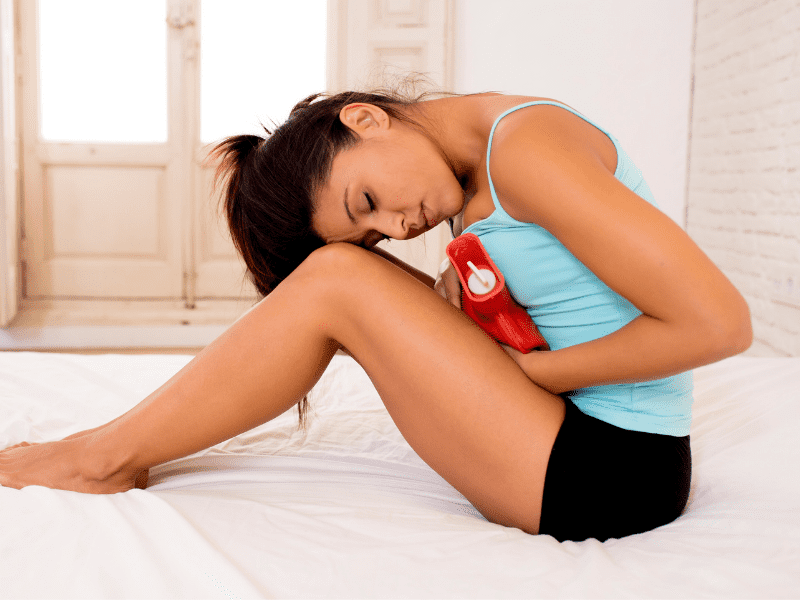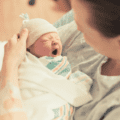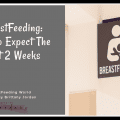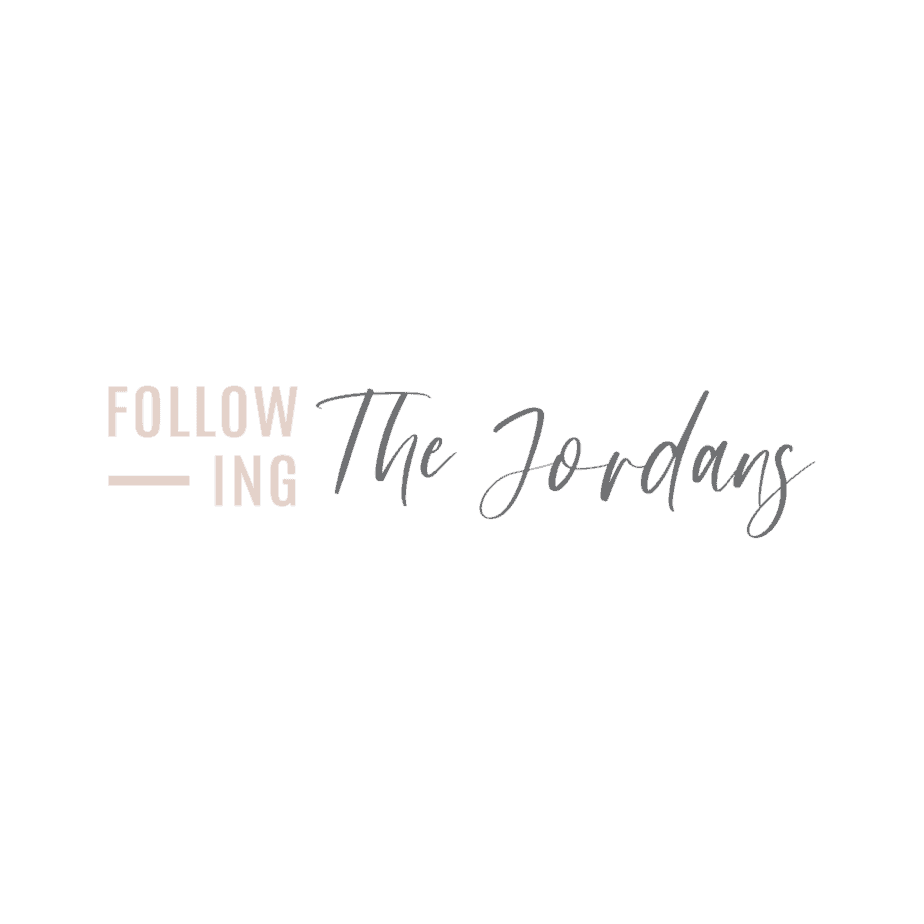9 First Postpartum Period Truths You Need to Know
After having your baby, you expect a lot of new things to learn; becoming a mom for the first time is wild. However, something you might not realize will be different is your first postpartum period.
Your period has been MIA for over a year – or much longer – so when it shows back up again, don’t expect it to be business as usual immediately. It takes time for your body to get back to normal.
It can be a shocker to realize how different your periods may be after having a baby, but preparing yourself ahead of time makes your postpartum period less intimidating. You have a lot to prepare yourself for, so let’s take a look.
Pin this blog for later! ↓
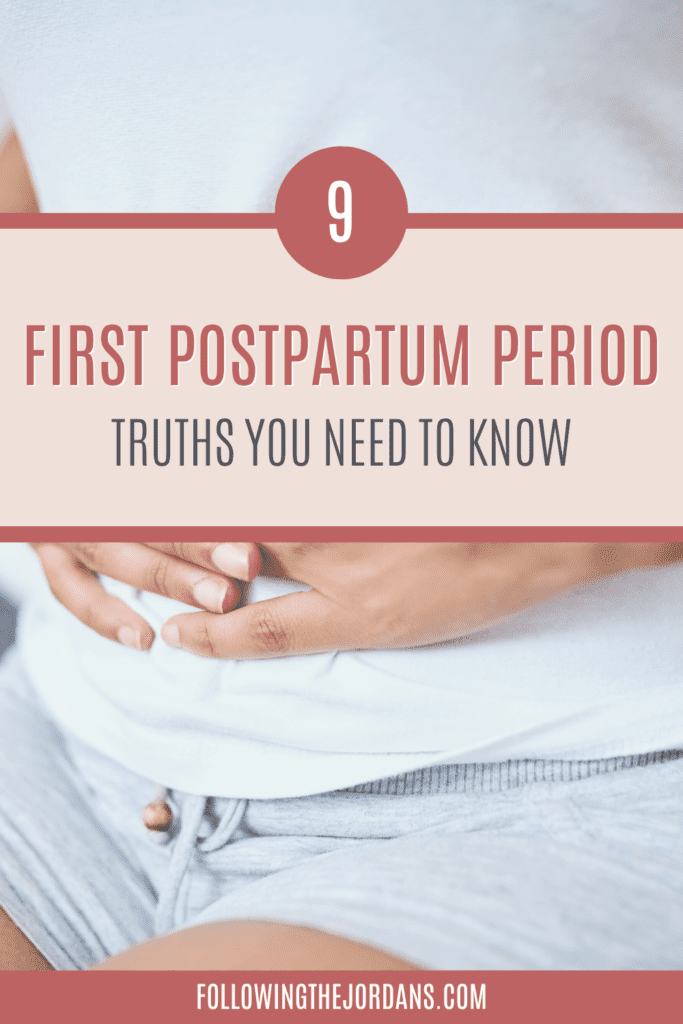
Related: How I Knew I Had PPD: A Mom’s Real Life Experience
9 Things to Know about Your First Postpartum Period
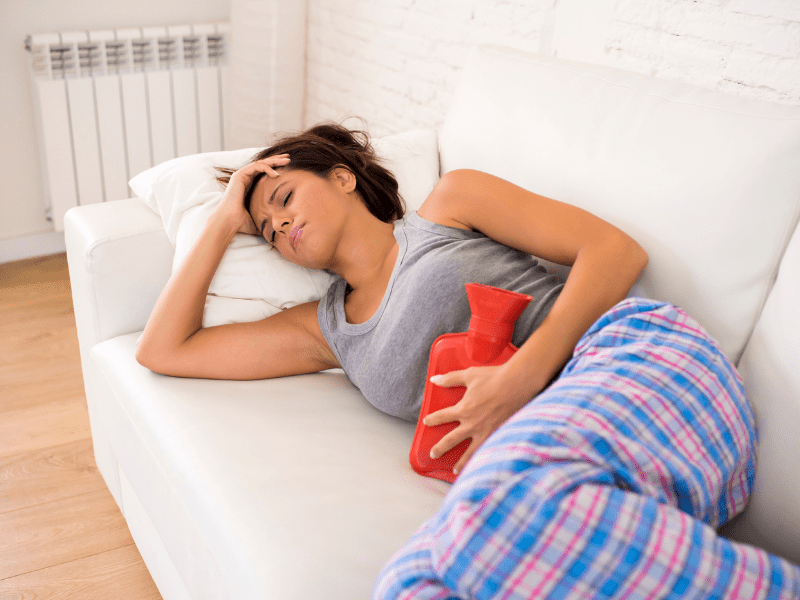
1. Lochia and a Postpartum Period Aren’t The Same
After you give birth, you bleed vaginally, no matter if you have a vaginal birth or a c-section; this bleeding is called lochia. It took lasts six to eight weeks after you have a baby.
This is not your first postpartum period, and it’s not the return of your menstrual cycle. Your first postpartum period takes place after your lochia stops entirely.
Here are a few ways to tell them apart if you aren’t too sure.
- Lochia isn’t usually bright red in color after the first week. It’s lighter and may be watery. If you experience bright red bleeding six weeks after birth, it’s more than likely your period.
- Lochia increases with exertion or activity. If you notice that the bleeding increases when you do chores or exercise, it’s more than likely lochia.
- Lochia has a distinct odor that some say has a sweet smell from leftover tissue.
2. When It Returns Varies From Woman to Woman
When your first period after childbirth arrives varies widely. If you don’t breastfeed, most women have their first period within the next six weeks after lochia stops, but it could be up to a few months after their bleeding stops.
Evidence shows ups that around 70% of women have their first postpartum period by 12 weeks postpartum.
If you breastfeed, it might take several months or a year for your period to arrive again. Around 20% of breastfeeding mothers get their period back before their baby turns six months old.
Once you wean your baby, your period should arrive within one to two months. Some mothers notice that their period arrives when their baby begins to eat more solid foods than before. Supplementation with formula also leads to the return of your period.
3. Breastfeeding May or May Not Delay Your First Postpartum Period
The truth is that breastfeeding often affects your period, but it’s not a guarantee to delay your period.
All women are different. I’ve spoken to many of my friends. Some notice that their periods wait up to a year or longer to return if they’re breastfeeding, while others experienced their period coming a few weeks after their lochia stops – even if they’re exclusively breastfeeding!
Breastfeeding is known to delay periods longer because of hormones. Prolactin is the hormone needed to produce breast milk, and it also suppresses reproductive hormones. So, your body doesn’t ovulate or release eggs. Without either of those things, you more than likely won’t menstruate.
4. Your First Period Won’t Be The Same
All women know that our bodies go through a crazy amount of changes during pregnancy, so it should come as no surprise that your period won’t be the same.
Most women experience a few noticeable differences when they have their first periods after childbirth, and while they might not last forever, it’s still good to note the potential differences so you aren’t surprised.
Here are some of the most common changes.
- A heavier flow
- Longer duration
- More cramping
- Small blood clots
- Increased pain
- Irregular cycle lengths
The first period after giving birth is typically heavier and you may have some not-so-fun other symptoms as well. However, these things rarely last. Once your body adjusts and hormones go back to normal, your period should make its way back to its norm.
5. Chances Are Your First Postpartum Period Will Be Heavier
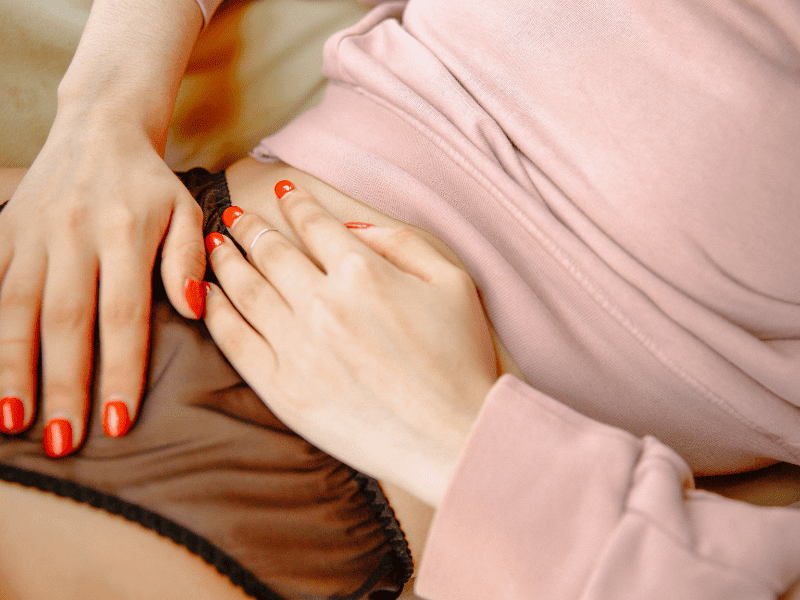
When your period returns, it will likely be heavier than average. The heaviness is because your body is shedding your uterine lining and any clots or old blood from the delivery process that might not have come out before.
6. Irregular Periods After Giving Birth Are Normal
Women who have clockwork-like periods before childbirth may be surprised to find that their postpartum periods could be longer or shorter than average. They’re often unpredictable for the first few months while your hormones level out.
The irregularity won’t last forever, but it’s frustrating until it all evens out. I always kept pads and tampons in my purse because a perfect period cycle might not happen until several periods later.
7. You Can Get Pregnant BEFORE Your First Postpartum Period Arrives
Here’s something more women need to know – you can still get pregnant even if your first period hasn’t arrived yet. Before your period arrives, you have to ovulate, and unless you track signs and your temperature, you might not know your body is ovulating.
8. Tampons May Be a No-Go
If your period returns quickly, your OBGYN may recommend you avoid tampons. However, many women note that wearing a tampon after giving birth is uncomfortable. Stock up on pads!
9. Your Period May Affect Your Breast Milk
When your period returns, it may cause changes in your milk supply or how your baby reacts to your breast milk. This has to do with the hormonal changes that your body goes through when your period arrives.
Some women note that they have a slight dip in their milk supply or their baby wants to nurse less. Hormones also change your breast milk’s composition, so your baby might not enjoy the change.
However these changes are minor and will go back to normal once your period ends.
Postpartum Period Signs You Need to Watch Out for
Most women will have no issues with their first postpartum period, but there are some signs that indicate a problem.
Here are a few of these not-good signs.
- Heavy bleeding that fills a pad in an hour
- Passing multiple clots or a clot that is the size of a golf bag or larger
- Fever
- Chills
- Lightheadedness
- Foul-smelling blood or discharge
- Belly pain
- Rapid heart rate
- Trouble breathing
- Pain when urinating
All of these signs require a call to your doctor or a trip to the emergency room. Some of them may indicate an infection.
Getting your first postpartum period isn’t something most women look forward to, but when you know what to expect, it feels a little less intimidating. Don’t be stressed; it will eventually get back to normal!


